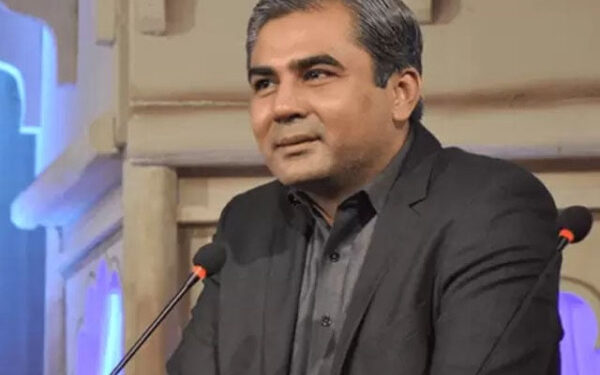Introduction: A Message of Unity on National Minorities Day
Federal Interior Minister Mohsin Naqvi has reaffirmed that Pakistan was established on the guiding principles of equality, tolerance, and mutual respect—values that will continue to remain at the heart of the nation’s identity.
In his message on the occasion of National Minorities Day (celebrated annually on August 11), Naqvi emphasized that the country not only recognizes but also safeguards the life, property, freedom of belief, and worship of its minorities. He stated that these protections are not merely legal obligations outlined in the Constitution, but are also core elements of Pakistan’s state identity.
Historical Context: The Vision of Pakistan’s Founding Fathers
Quaid-e-Azam’s August 11, 1947 Address
Naqvi’s remarks closely echo the vision of Quaid-e-Azam Muhammad Ali Jinnah, who, in his famous August 11, 1947 address to the Constituent Assembly of Pakistan, laid down the principle that religion, caste, or creed should have no bearing on the equal rights of citizens.
In that speech, Jinnah declared:
“You are free; you are free to go to your temples, you are free to go to your mosques or to any other places of worship in this State of Pakistan.”
This statement became a foundational cornerstone for Pakistan’s policy toward its non-Muslim citizens, highlighting that religious diversity is to be embraced, not suppressed.
National Minorities Day: Celebrating Diversity and Inclusion
Origins of the Observance
National Minorities Day was introduced to honor the contributions and sacrifices made by non-Muslim citizens in the creation and development of Pakistan. It serves as a reminder of the shared responsibility to uphold tolerance, religious freedom, and equal opportunity for all.
Role of Minorities in Pakistan’s History
From the earliest days of independence, minority communities—including Christians, Hindus, Sikhs, Parsis, and others—played vital roles in various fields:
- Military Service: Many minority citizens have served in the armed forces with distinction.
- Healthcare and Education: Christian missionary institutions have provided some of the country’s best schools and hospitals.
- Business and Industry: Hindu and Parsi business leaders have contributed significantly to Pakistan’s economic growth.
Mohsin Naqvi’s Message: Equal Citizenship for All
Equality Beyond Religion
In his message, Mohsin Naqvi stressed that every citizen, regardless of religious affiliation, is an equal Pakistani. He noted that Islam itself commands freedom of belief, respect for human dignity, and the prohibition of coercion in matters of faith.
“Pakistan considers the life and property of minorities, freedom of belief and worship not only a constitutional responsibility, but also a state identity,” Naqvi reiterated.
Islam’s Teachings on Minority Rights
Prohibition of Coercion
Islamic principles, as outlined in the Holy Qur’an, state:
“There is no compulsion in religion” (Qur’an 2:256).
This command underscores that faith must be a matter of free choice and personal conviction.
Respect for Humanity
Prophet Muhammad (PBUH) himself entered into treaties with non-Muslim communities, guaranteeing their safety, religious freedom, and property rights—establishing historical precedents that form the ethical backbone of Pakistan’s minority protections today.
Government Commitment to Protection of Minority Rights
Safety of Life, Property, and Holy Places
The Interior Minister emphasized that the protection of minority citizens and their religious sites remains a top priority for the state. This includes security for churches, temples, gurdwaras, and other places of worship—especially during religious festivals and events.
Equal Participation in National Development
Naqvi described minorities as “proud partners in national development”, highlighting their active role in governance, business, sports, arts, and education. The government, he said, recognizes their contributions with respect, equality, and full participation.
Challenges Faced by Minorities in Pakistan
While Mohsin Naqvi’s message highlights the constitutional safeguards, it also comes against a backdrop of periodic challenges:
- Incidents of intolerance or mob violence in certain regions.
- Land disputes involving minority religious sites.
- Economic marginalization in rural areas.
The government has launched initiatives to address these challenges, including special quotas in government jobs, reserved seats in assemblies, and legal protections for places of worship.
Constitutional Guarantees for Minority Rights
Pakistan’s Constitution of 1973 explicitly protects religious minorities:
- Article 20: Guarantees freedom to profess, practice, and propagate religion.
- Article 22: Ensures that no citizen is required to receive religious instruction other than their own faith.
- Article 36: Directs the state to safeguard the legitimate rights and interests of minorities.
These provisions place legal weight behind the moral and ethical obligations mentioned by Mohsin Naqvi.
The Role of Civil Society and Interfaith Harmony
Community Programs
In addition to government action, civil society organizations and interfaith dialogue forums have been actively promoting religious tolerance. Events such as interfaith Iftars, joint cultural festivals, and collaborative charity work have brought together Muslims, Christians, Hindus, Sikhs, and others in acts of solidarity.
Educational Initiatives
Schools and universities are being encouraged to teach inclusive history and highlight the contributions of minorities in Pakistan’s development—countering stereotypes and promoting a sense of shared identity.
A National Identity Built on Tolerance
From 1947 to Today
Since independence, Pakistan’s success stories have been enriched by the contributions of all communities, Muslim and non-Muslim alike. From Justice A.R. Cornelius (Christian) serving as Chief Justice of Pakistan to Dr. Ruth Pfau (German-born Christian) dedicating her life to eradicating leprosy, the nation’s journey proves that diversity is a strength.
Conclusion: A Call to Uphold Jinnah’s Vision
Federal Interior Minister Mohsin Naqvi’s statement is a reminder of Pakistan’s founding principles—principles rooted in Islamic teachings, constitutional guarantees, and the vision of Quaid-e-Azam.
As Pakistan continues to face modern challenges, the message of equality, tolerance, and mutual respect remains more relevant than ever. The minister’s assurance that minorities are equal heirs of the state reflects a commitment to ensuring that every Pakistani, regardless of religion, enjoys the same rights, protections, and opportunities.

























